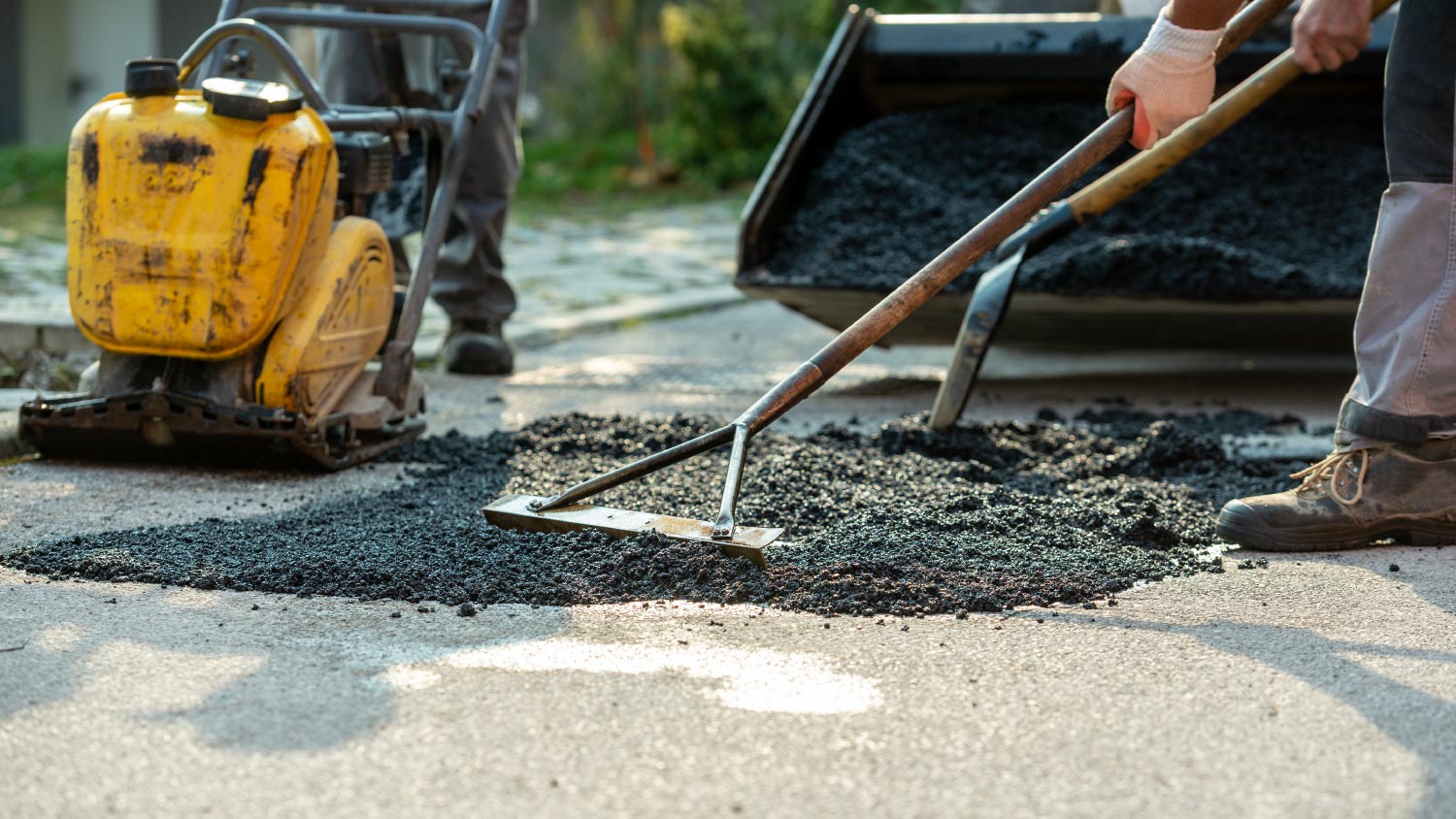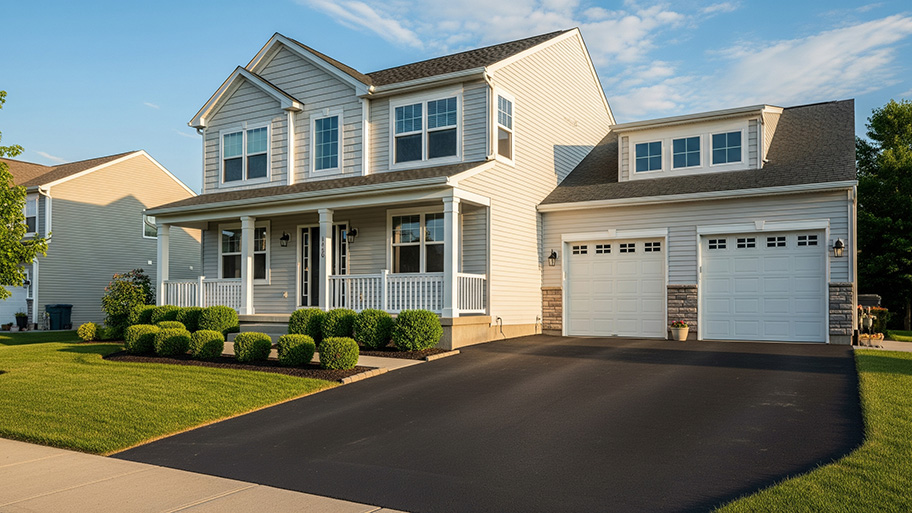
The cost to build a road on your property can be high, but the utility is often worth it. Use this cost guide to see how much this project will cost.
No one wants a warped, cracked driveway


Asphalt is a super-durable material, which is why it’s one of the best materials for driveways and other surfaces. But it's not impervious to damage: if not maintained properly, your driveway may become cracked and uneven, forcing you to repave it years earlier than you had planned.
Fortunately, it's not that difficult to protect the integrity of your asphalt. Here are a few tips that can ensure your driveway will remain in tip-top condition for years to come.
One of the best and simplest ways to protect your asphalt is to keep it clean by regularly sweeping up debris and washing it with water. Use a brush with stiff bristles to get all of that debris off of the asphalt's surface, as that dirt and grime can get into the asphalt and cause cracks to form over time.
Washing it will help you get rid of other contaminants, like oil stains. Do this every few weeks or so to keep your asphalt healthy and looking at its best. Also, you should pressure wash your driveway every year.

As soon as you notice a crack in the asphalt, it's time to act. Cracks get bigger very quickly, and they lead to more cracks as liquids and debris get into it. Pretty soon, you're looking at a complete repaving job, and that's not a low-cost proposition. The cost to install a new asphalt driveway is anywhere between $1,500 and $11,000.
You can buy asphalt repair patching materials at any hardware store or online. It's not expensive and it's a pretty simple job that anyone can do. So there's no reason to delay: as soon as you notice that crack, mark off a couple hours over the weekend to get it taken care of.
Weeds are not just unsightly—they can cause major damage to your driveway if left unchecked. The roots of weeds grow quickly and multiply, and they can cause some serious disruption to the ground underneath your driveway, causing cracks to form. More weeds may grow within those cracks, further extending the damage.
As soon as you notice weeds starting to grow, get some weed killer and keep them in check. You may need to get a trowel and a pair of gardening gloves to dig them up by hand. The earlier you do it, the easier it will be to take care of the issue.
If your driveway doesn't drain properly, it could result in puddles of standing water, which is very bad for your asphalt as it weakens the surface and eventually leads to cracks. If you have serious drainage issues, you may need to contact a professional to come out and recommend a course of action to fix the issue.
A great way to protect your driveway is to sealcoat it. Not only does sealcoating protect the asphalt from water, sunlight, and contaminants, but it also gives it a fresh, sleek look that will increase the curb appeal of your home. It also means you don't have to spend as much time maintaining it. The cost to seal an asphalt driveway is typically between $250 and $700.
Sometimes, it's best to leave these jobs up to the pros. Contact a paving company near you to ask what their options are. Many offer asphalt maintenance plans for a discounted price, so they can take care of all the work and ensure your asphalt will be at its best at all times.
From average costs to expert advice, get all the answers you need to get your job done.

The cost to build a road on your property can be high, but the utility is often worth it. Use this cost guide to see how much this project will cost.

The cost of a tar and chip driveway falls between gravel and asphalt. Is this unique process the happy medium you've been looking for? Let's take a look.

Discover the average cobblestone driveway cost based on factors like the size and scope. Keep reading to budget for a cobblestone driveway.

Recycled asphalt is a less expensive, eco-friendly alternative to standard asphalt. Learn all about recycled asphalt driveways to see if it’s right for you.

Asphalt is the best driveway material for cold weather, but there are times when other materials may be a better fit. Get the details in this article.

The average driveway coating takes between 30 minutes and eight hours to dry, but weather and sealant type can influence the dry time. Read on to learn more.